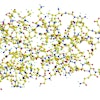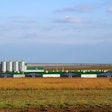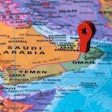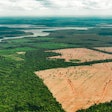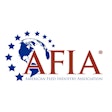The Animal Nutrition business line of Evonik is to participate in the cooperative research project "Water Footprint for Companies – Local Measures in Global Value Chains" (WELLE). The aim is to expand life cycle assessments of products and processes by the aspects of water consumption and local water scarcity.
The three-year project launched in April is funded by the German Federal Ministry of Education and Research. The project management is carried out by the Department of Sustainable Engineering at the Technical University Berlin.
For Evonik, the protection of resources, the environment and climate is central to its business activity. Life cycle assessments (LCAs) are already firmly anchored in Evonik's operating businesses. For example, the Animal Nutrition business line has been regularly performing life cycle assessments for its amino acid products since 2003, in order to quantitatively assess their sustainability with regard to CO2 emissions, acidification and eutrophication over the entire life cycle ("cradle to grave").
"We would like to further expand our methodology to include the water footprint and to come to a holistic sustainability assessment by 2020, which also includes social aspects," says Dr. Michael Binder, responsible for the water footprint in Sustainability Development in the Nutrition & Care segment of Evonik.
One key focus will be on water consumption at the production sites. The methodology for this will be developed within the framework of the WELLE project, making Evonik one of the first companies to test its industrial applicability in the coming year.
However, a large proportion of water consumption does not arise at the production sites, but actually in the supply chain – often in countries already suffering from water shortages. So, a key part of the project WELLE is the consideration of entire global value chains. For Evonik, this means that its suppliers will also be included in the analysis, either by directly working with the methodology or asked to provide the raw data.
"In addition to climate change, water is expected to become one of the most dominant ecological issues in the coming years," predicts Dr. Martin Kirchner, Head of the Life Cycle Management Group from the Technology & Infrastructure segment, involved in the WELLE project. In the Dow Jones Sustainability Index, for example, it already attracts great attention.
"We are glad that this methodology development in the area of assessing water footprint is now being pushed forward. As a basis for making responsible future business decisions, reliable facts are essential," says sustainability expert Kirchner.

